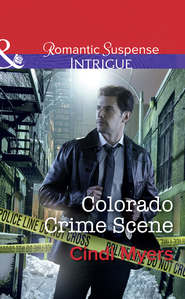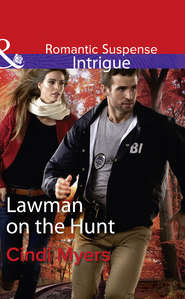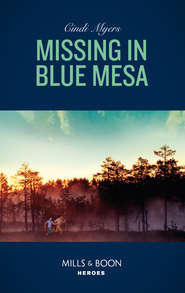По всем вопросам обращайтесь на: info@litportal.ru
(©) 2003-2024.
✖
Snowblind Justice
Автор
Год написания книги
2019
Настройки чтения
Размер шрифта
Высота строк
Поля
“Probably about as many as were able to leave town when the road opened,” Adelaide said. “Everyone is just trading places.”
“I’ll take your word for it,” Brodie said. “You do seem to know everything.” He leaned toward her. “Are those monkey earrings?”
“Yes.” She tapped one earring with a red-painted fingernail. “Do you like them?”
“Only you could pull off a look like that, Adelaide,” Brodie said, grinning.
She swatted his shoulder. “You’re the kind of man I always warned my daughters about.”
“What kind is that?”
“Too smart and good-looking for your own good. The kind of man who’s oblivious to the broken hearts he leaves behind.”
“Adelaide, Brodie is here as a fellow law enforcement officer,” Travis said. “He deserves our respect.”
“I’m sure he’s a sterling officer,” Adelaide said. “And a fine man all around. Just not marriage material—which is probably okay with him.” She grinned, then turned to Travis. “And speaking of marriages, don’t you have a tux fitting to see to?”
Color rose in the sheriff’s cheeks. “I don’t need you to keep track of my schedule, Addie,” he said. “Right now I have a case to work on.”
“You always have a case to work on,” Adelaide said. “You only have one wedding.” She whirled and stalked away.
Brodie settled back in his chair once more. “Do you have a tux fitting?” he asked.
“I canceled it.”
“Unless you’re going to get married in your uniform, are you sure that’s a good idea?”
Travis scowled at Brodie. “They have my measurements. They don’t need me.” His phone rang and he answered it. “Hello?”
He listened for a moment, then said, “I’ve got Brodie in the office. I’m going to put you on speaker.” He punched the keypad. “All right. Say that again.”
“I’ve got what looks like another victim of the Ice Cold Killer,” Deputy Dwight Prentice said. “Taped up, throat cut, left in her car near the top of Dixon Pass. Only, she’s still alive. The ambulance is on its way.”
Travis was already standing. “So are we,” he said.
Chapter Four (#ub3f277e0-5cc8-542e-906f-5c3a77de35ab)
The woman—a once-pretty brunette, her skin bleached of color and her hair matted with blood—stared up at them, glassy-eyed, her lips moving, but no sound coming out. “You’re safe now,” Brodie said, leaning over her. “We’re going to take care of you.” He stepped back as the EMTs moved in to transfer the woman to a waiting gurney.
“We’ve already called for a helicopter,” the older of the two paramedics said. “I think this is more than the clinic in Eagle Mountain can handle. They’ve agreed to meet us at the ball fields, where it’s open enough for them to land.”
Brodie’s gaze shifted to the woman again. She had closed her eyes and her breath came in ragged gasps. He wanted to grab her hand and encourage her to hang on, but he needed to move out of the way and let the paramedics do their job.
Travis, who had been talking to Dwight and highway patrolman Ryder Stewart, motioned for Brodie to join them. “Her name is Denise Switcher,” Ryder said. “We found her driver’s license in the purse on the passenger floorboard, and the registration on the car matches. Her address is in Fort Collins.”
“Did she say anything about what happened?” Brodie asked.
“I don’t think she can talk,” Dwight said. “One of the EMTs said the vocal chords may be damaged.”
Brodie winced. “How is it she’s still alive?”
“I don’t know,” Travis said. “But I hope she stays that way.” He nodded to Dwight. “You must have come along right after it happened. Did you see anything or anyone who might have been Alex?”
“No.” Dwight hooked his thumbs over his utility belt and stared toward the EMTs bent over the woman. “A trucker who was pulled over taking off his tire chains flagged me down and said he spotted a car on the side of the road near the top of the pass. He didn’t see anyone in it, but thought maybe I’d want to check.” Dwight pulled a notebook from inside his leather coat. “Gary Ellicott. He was delivering groceries to Eagle Mountain and somehow missed that the road had been closed again. When he got to the barricades, he had to back down a ways before he could turn around. He thinks about fifteen minutes had passed between the time he spotted the car and when he talked to me.”
“I don’t think she was lying there very long,” Brodie said. “A wound like that bleeds fast.” If much more time had passed, she would have bled to death.
“The road closed seventy-five minutes ago,” Ryder said. “There was a lot of traffic up here and it took maybe half an hour to clear out. If the killer was cutting her throat then, someone would have seen.”
“So this most likely happened between thirty and forty-five minutes ago,” Brodie said.
“But he would have had to have stopped the car before the road closed,” Travis said. “The car is on the southbound side of the road, headed toward town. That seems to indicate she was arriving, not leaving.”
“We’ll need to find out if she was staying in town,” Brodie said. “Maybe she has family in Eagle Mountain, was leaving and, like the truck driver, had to turn around because of the barricade.”
“If this is Alex’s work and not a copycat, that means he didn’t leave town,” Travis said.
The paramedics shut the door of the ambulance and hurried to the cab. Siren wailing, they pulled away, headed back toward town. “Let’s take a look,” Travis said, and led the way to the car, a gray Nissan sedan with Colorado plates. It was parked up against a six-foot berm of plowed snow, so close it was impossible to open the passenger side door. The snow around the vehicle had been churned by the footsteps of the paramedics and cops, to the point that no one shoe impression was discernable. “I took photographs of the scene before I approached,” Dwight said. “But I can tell you there weren’t any footprints. If I had to guess, I’d say the killer used a rake or shovel to literally cover his tracks.”
Brodie continued to study the roadside. “I don’t see any other tire impressions,” he said.
“He could have parked on the pavement,” Ryder said.
“Or he could have been on foot,” Travis said.
“It’s four miles from town up a half-dozen switchbacks,” Ryder said. “That’s a long way to walk. Someone would have noticed.”
“Not if he stayed behind the snow.” Travis kicked steps into the snowbank and scrambled to the top and looked down. “There’s a kind of path stomped out over here.”
Brodie climbed up beside him and stared down at the narrow trail. “It might be an animal trail.”
“It might be. Or it could be how Alex made his way up to this point without being seen. Then he stepped out in the road and flagged down Denise and pretended to be a stranded motorist.”
“How did he know the driver was a woman by herself?” Brodie asked.
“He could have studied approaching traffic with binoculars.”
The two men descended once more to the others beside the car. “Why would any woman stop for him, knowing there’s a killer on the loose?” Dwight asked.
“She was from Fort Collins,” Travis said. “I don’t know how much press these murders have been getting over there. It wouldn’t be front-page news or the top story on a newscast.”
“He’s right,” Brodie said. “I’ve seen a few articles in the Denver papers, but not much. It would be easy to miss.”
“Alex is a good-looking young man,” Travis said. “Clean-cut, well dressed. If he presented himself as a stranded motorist, stuck in the cold far from town, most people would be sympathetic.”
“Maybe he dressed as a woman, the way Tim did when they were working together,” Dwight said. “People would be even more likely to stop for a woman.”
“Alex and Tim were both amateur actors, right?” Brodie asked, trying to recall information from the reports he had read.











